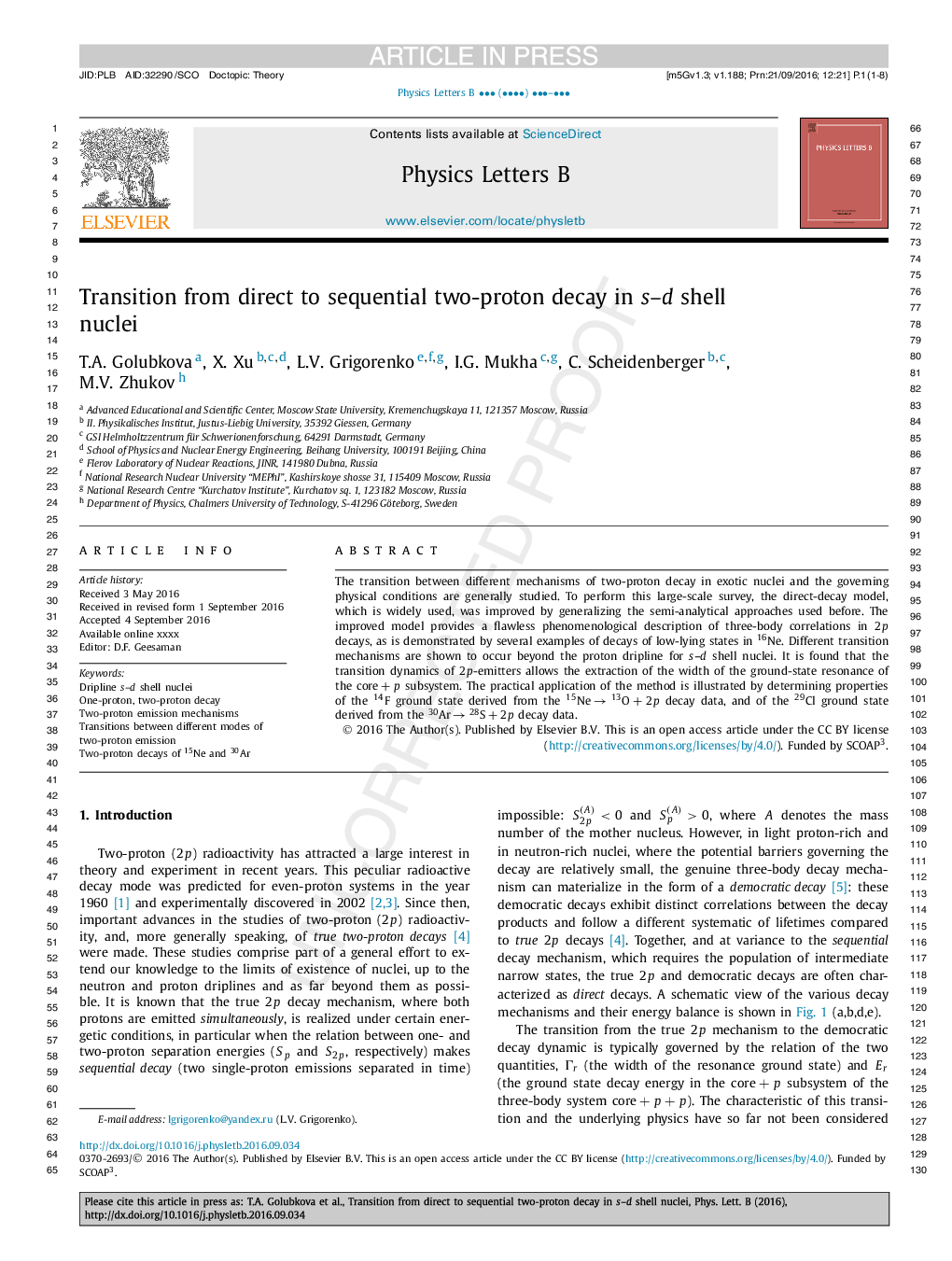| Article ID | Journal | Published Year | Pages | File Type |
|---|---|---|---|---|
| 5495550 | Physics Letters B | 2016 | 8 Pages |
Abstract
The transition between different mechanisms of two-proton decay in exotic nuclei and the governing physical conditions are generally studied. To perform this large-scale survey, the direct-decay model, which is widely used, was improved by generalizing the semi-analytical approaches used before. The improved model provides a flawless phenomenological description of three-body correlations in 2p decays, as is demonstrated by several examples of decays of low-lying states in 16Ne. Different transition mechanisms are shown to occur beyond the proton dripline for s-d shell nuclei. It is found that the transition dynamics of 2p-emitters allows the extraction of the width of the ground-state resonance of the core+p subsystem. The practical application of the method is illustrated by determining properties of the 14F ground state derived from the Ne15âO13+2p decay data, and of the 29Cl ground state derived from the Ar30âS28+2p decay data.
Related Topics
Physical Sciences and Engineering
Physics and Astronomy
Nuclear and High Energy Physics
Authors
T.A. Golubkova, X.-D. Xu, L.V. Grigorenko, I.G. Mukha, C. Scheidenberger, M.V. Zhukov,
